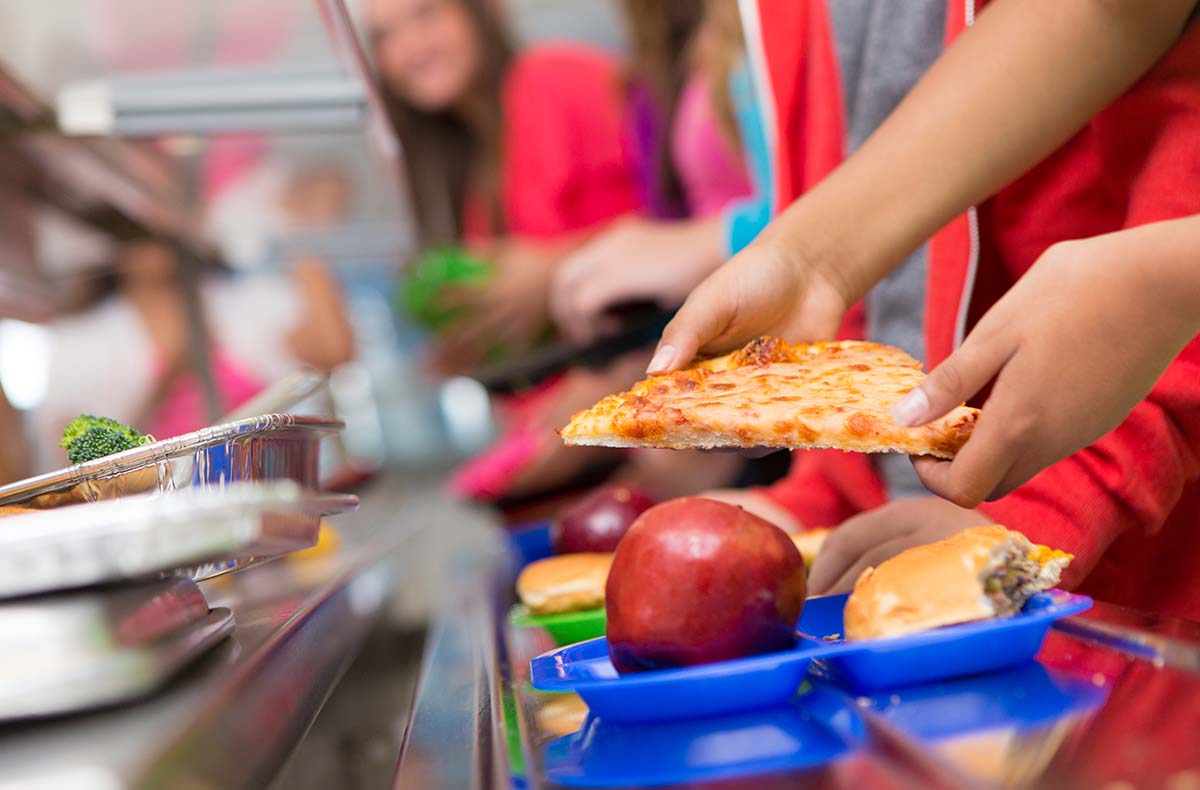
Brandi Lawless elaborates on the hypocrisy of North Carolina’s free school lunch policies:
North Dakota senators recently voted to reject free lunches for low-income school kids. In his arguments against House Bill 1491, Senator Mike Wobbema blamed child hunger on “negligent” parents, personal responsibility, and posed a question asking whether “their kids are choosing to eat in the first place.” Wobbema’s remarks paint child hunger as a choice rather than a reality and a humanitarian crisis that needs government intervention.
I was a free-lunch kid. And yes, I had a negligent parent. Was I at fault for my parent’s shortcomings? I was hungry and deserved to be fed without stigma. In response to Senator Wobbema, if given the choice, I would choose to eat. Millions of children are in this position today. That’s why initiatives like California’s Free Meal Program, that funds free lunches for all students, need to be indefinitely extended with federal funding.
I knew what it was like to approach the front of the line and tell the lunch cashier, “I’m on the list.” The eight-year-olds behind me would ask, “What list? Maybe I’m on the list?” I’d have to explain why the cashier could look up my name and shoo me away.
It was embarrassing. I’ve tried to personally rectify this for some students by helping to pay off student lunch debt. To my great relief, California was the first state to make school lunches free for all students, just in time for my child to attend public schools. California legislators recognized that federal programs for children in poverty are not enough, given that the federal poverty line has not really changed since the 1960s and does not account for the cost of living.
Let’s not forget that many of the states that are rejecting free school-lunch-for-all programs are the same states who are banning abortions. If the rationale is to “save children” and be “pro-life,” then it is the duty of these state policymakers to ensure that funding is appropriated for feeding these children and ensuring a quality of life. To do otherwise isn’t the negligence of the parent but the policymaker.
For North Dakota lawmakers, the issue of funding for school lunches seems to revolve around the question, “How poor do you have to be to need a free lunch?” Currently, North Dakotan families, who make 130% of the federal poverty line, are eligible for federal free lunch programs.
The bill in question would have expanded meal programs for children in families making at or below 200% of the federal poverty guidelines. For a family with three children, those earning below $49,720 would be eligible. An earlier version of the bill would have expanded free lunch programs for all students, regardless of income, matching other states who kept Covid-era funding to do just that.
The results of California’s Universal Meal Program have had an astounding impact on the 6.2 million public school students in the state. Teachers report that kids are happier, healthier, and have better cognitive functioning. Additionally, the program has been a relief to parents who struggle to make ends meet, are ill, or otherwise unable to pack their children a healthy meal.
Those who argue that there is “no such thing as a free lunch” must think of this policy as an investment. In my estimation, it costs about $8,640 to feed me from K-12. I am now a working professional with a Ph.D. who pays about this much in property taxes annually. I want those taxes to invest in the next generation of students. Several states have proven that we can make that happen. Other states must follow suit by utilizing all TANF funding and reappropriating state funding.
North Dakota lawmakers followed up their rejection of free lunches for children by passing legislation that increases their own meal reimbursement by 29%. In other words, the North Dakota legislature chose to invest more money in themselves than the state’s children. And the results were not nearly as close as those about feeding our kids. Whereas HB 1491 failed by a single vote, the measure to fund state employees’ meal reimbursements passed by a margin of 26-21. Additionally, 13 Republicans voted against the expansion of school lunches for children but for an increase of their own per diem. It’s clear who these lawmakers are prioritizing.
We cannot rely on our elected lawmakers to represent the interests of our children over the interests of themselves. Few states have expanded free lunch programs for all and more need to prioritize such policies. Doing so will temper child hunger, destigmatize low-income students and give parents the relief they need.
All parents of K-12 students, regardless of income, need to contact their congressperson and let them know to end the stigma of free-lunch programs by implementing free-lunch-for-all. Parents who, like me, are in a position to pay for their children’s lunch can then use saved funds to donate to other underfunded school programs. It’s time we took away this stigma and show that we care about keeping all of our kids full and healthy.


